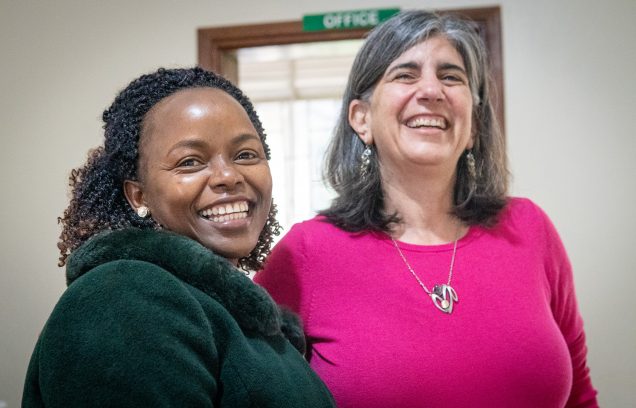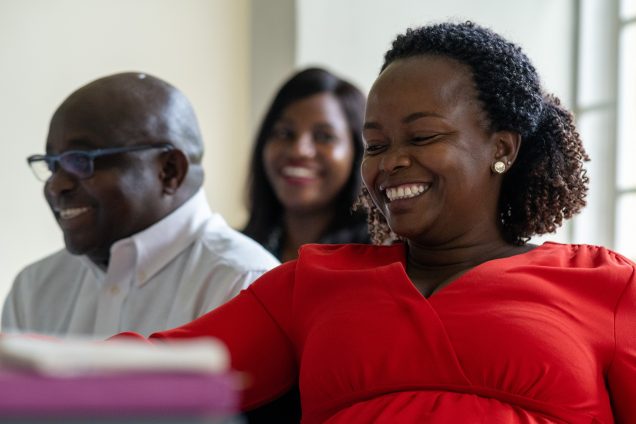Spotlight on… Naomi Sanyu
 As told to URBAN ARCH Admin Core staff, June 2023
As told to URBAN ARCH Admin Core staff, June 2023
Tell us about what led you to work in the field of HIV and alcohol research, and what led you to work on the TALC study.
My desire to work in the field of HIV started in 2011 when I volunteered for the Millennium Villages Project (MVP), implemented by Millennium Promise Alliance, a non-profit US-based organization that implemented a bottom-top approach to lift villages in developing countries from the scourge of abject poverty. While carrying out my duties as a health sector operations supervisor for MVP, I witnessed firsthand the high rates of both alcohol use and HIV among young people in one village, which was known for very high rates of HIV in Western Uganda. It is at that point that I felt an ardent desire to work with and be a part of world changers that would design interventions for these young people. In March 2013, when an RA opportunity presented itself, I applied and was privileged to get the job working in a healthy babies and health care workers’ study even with no prior research experience.

In another vein, I have lived to experience a close family member addicted to alcohol. All my young and adult life, I have searched for interventions to help my family member break free from alcohol. So the TALC study, most specifically the qualitative component that seeks to design an alcohol and smoking intervention, attracted me to work on the TALC study.
After successfully coordinating the EXTEND study, I was recommended by the EXTEND PI, Judy Hahn, who also is a collaborator with the TALC Study. Most specifically, I wanted to be a part of the qualitative component that is a part of the TALC study since I delight in doing qualitative work.
What is the most challenging and most rewarding aspect of your job?
The most challenging aspect of my work is struggling to hit the recruitment targets or when participants do not benefit from our intervention.
The most rewarding aspect of my work is when data and sample analysis show that participants have benefitted from the study; for example, when PEth validates self-report.
What is your favorite memory from a past study that you’ve worked on?
I have many great memories; but my favorite memory is when I presented a poster in an international conference for the very first time.
Tell us one thing about yourself that readers might find surprising.
I just possess a basic degree in Business and do not have any added formal training/ education such as a Master’s in public health. However, I go about my duties with utmost knowledge of public health.
Any other comments?
I can never thank the TALC leadership enough; they have given me a wonderful opportunity to work with a team of renowned experts whose major goal is to make the world a better place to live.
